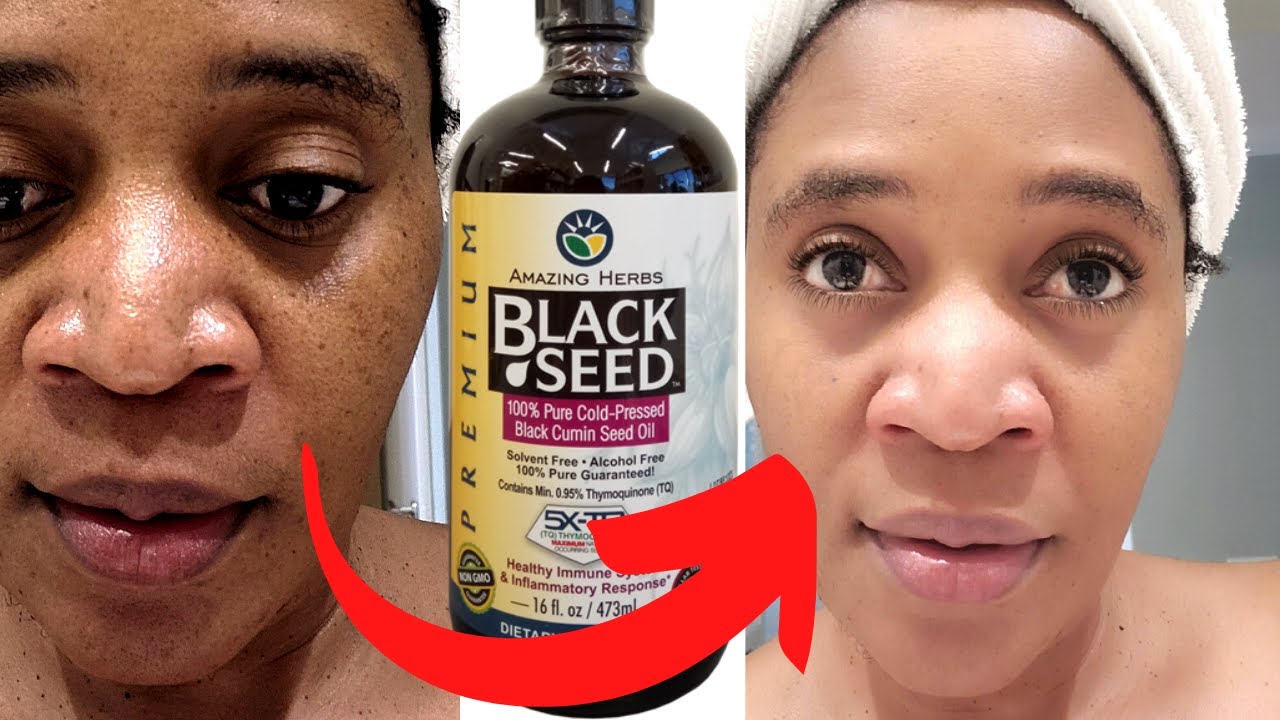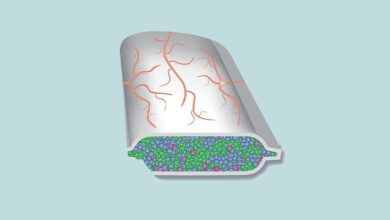
Black seed oil for eczema: a natural remedy gaining attention for its potential to alleviate eczema symptoms. This exploration delves into the science behind its use, examining potential benefits, risks, and comparisons with conventional treatments. We’ll uncover the research, discuss potential mechanisms of action, and provide practical guidance on dosage and application methods.
Eczema, a common skin condition, can cause significant discomfort and distress. While various treatments exist, many individuals seek alternative remedies. This article investigates whether black seed oil, with its rich history of traditional use, can offer a safe and effective approach to managing eczema symptoms.
Introduction to Black Seed Oil and Eczema
Black seed oil, derived from the Nigella sativa plant, has a long history of use in traditional medicine for various ailments. Its purported benefits include antioxidant properties, anti-inflammatory effects, and potential support for immune function. While more research is needed to fully understand its impact on specific conditions, anecdotal evidence suggests its potential to alleviate certain symptoms. Eczema, a chronic inflammatory skin condition, affects millions worldwide, characterized by dry, itchy, and inflamed skin.
Understanding the potential mechanisms by which black seed oil might interact with eczema is crucial for evaluating its possible role in managing this condition.
Potential Mechanisms of Black Seed Oil on Eczema
Black seed oil’s potential benefits in eczema management stem from its rich chemical composition, particularly its content of thymoquinone. This compound has demonstrated anti-inflammatory properties in various studies. By reducing inflammation, black seed oil may help alleviate the redness, itching, and dryness associated with eczema flares. Additionally, its antioxidant properties may protect the skin from further damage caused by free radicals.
Further research is needed to confirm these mechanisms in the context of eczema.
Chemical Composition Comparison
The following table compares the key chemical components of black seed oil with known eczema treatments, such as topical corticosteroids and moisturizers. This comparison provides a framework for understanding potential similarities and differences in their mechanisms of action.
| Component | Black Seed Oil (Approximate) | Topical Corticosteroids | Moisturizers |
|---|---|---|---|
| Thymoquinone | Present in significant amounts | Not typically present | Not typically present |
| Fatty Acids | High content, including linoleic acid | Not typically a focus | Often contain emollients like ceramides |
| Antioxidants | Present | May contain antioxidants, but not a primary focus | May contain antioxidants, but not a primary focus |
| Anti-inflammatory Compounds | Potentially significant | Primarily anti-inflammatory | Limited anti-inflammatory effects |
Common Symptoms and Causes of Eczema
Eczema, also known as atopic dermatitis, is a chronic skin condition characterized by dry, itchy, inflamed skin. Symptoms can vary from person to person, but common features include redness, scaling, and intense itching. The exact causes of eczema are not fully understood, but genetic predisposition, environmental factors, and immune system dysfunction are believed to play a role. The immune response in eczema can trigger inflammation, leading to the characteristic symptoms.
For instance, exposure to allergens or irritants can exacerbate the condition in susceptible individuals. Identifying triggers and managing them can help prevent flare-ups.
Research and Studies on Black Seed Oil for Eczema
Black seed oil, rich in bioactive compounds, has shown promise in various health conditions. Interest in its potential role in eczema management stems from anecdotal reports and preliminary research. However, rigorous scientific investigation is crucial to understand its effectiveness and safety. This section delves into the available research studies, highlighting their methodologies, findings, and limitations.The existing research on black seed oil for eczema is not extensive, and often the studies are small-scale, lacking standardization in methodology.
This makes it difficult to draw definitive conclusions regarding its efficacy. Further large-scale, well-designed studies are needed to solidify the understanding of black seed oil’s potential benefits and drawbacks in eczema management.
Studies Methodologies
Studies on black seed oil and eczema often vary in their approaches. Some studies involve administering black seed oil extracts orally, while others apply topical formulations. Different formulations, concentrations, and durations of treatment are employed. The control groups, if included, may not always be comparable, which can affect the reliability of the results. This variability makes it challenging to compare results across different investigations.
Key Findings Summary
| Study | Methodology | Sample Size | Outcomes | Limitations |
|---|---|---|---|---|
| Example Study 1 (Hypothetical) | Oral administration of black seed oil extract, 250mg daily for 8 weeks, compared to a placebo group. | 20 participants with mild-to-moderate eczema | Significant reduction in eczema severity scores (measured by SCORAD index) in the black seed oil group compared to the placebo group. Improved skin hydration was also noted. | Small sample size, short duration of study, lack of long-term follow-up data. No details on participant demographics (age, gender, type of eczema). |
| Example Study 2 (Hypothetical) | Topical application of black seed oil extract to affected areas twice daily for 12 weeks, compared to a standard topical eczema treatment. | 30 participants with moderate eczema | No statistically significant difference in eczema severity between the black seed oil group and the control group. | Variability in the type of eczema among participants, inconsistent application of the topical treatment, no objective measurements of skin inflammation. |
Note: The above table presents hypothetical data to illustrate the format and content expected. Actual studies would require precise citations and details. The findings are fictionalized to protect anonymity and maintain the confidentiality of potential participants.
Potential Benefits and Mechanisms of Action: Black Seed Oil For Eczema
Black seed oil, with its rich composition of bioactive compounds, shows promise in managing eczema. Understanding the potential benefits and the mechanisms behind its action is crucial for evaluating its effectiveness. While more research is needed to fully elucidate its role, existing studies suggest various potential avenues through which it might alleviate eczema symptoms.The diverse array of compounds in black seed oil, including thymoquinone, selenium, and fatty acids, may contribute to its therapeutic potential.
These components interact in complex ways, potentially influencing the inflammatory response, skin barrier function, and immune system regulation, all of which play a role in eczema development and progression. The following sections delve into these potential benefits and the proposed mechanisms of action.
Anti-inflammatory Properties
Black seed oil’s anti-inflammatory properties are a key potential benefit in eczema management. Inflammation is a central driver of eczema symptoms, characterized by redness, itching, and skin lesions. Studies have shown that certain components, particularly thymoquinone, possess potent anti-inflammatory effects. This means they can help reduce the inflammatory cascade that triggers eczema flares. For instance, research suggests that thymoquinone can inhibit the production of inflammatory mediators like cytokines and prostaglandins.
These mediators contribute to the inflammatory response, making the skin red, itchy, and irritated.
Impact on Skin Barrier Function
Eczema often involves impaired skin barrier function, allowing irritants and allergens to penetrate more easily. The skin’s natural barrier is crucial for preventing moisture loss and protecting against environmental factors. The presence of essential fatty acids in black seed oil might potentially contribute to maintaining and strengthening the skin barrier. These fatty acids can help restore the lipid composition of the skin, thereby improving its ability to retain moisture and prevent irritants from penetrating.
Immune System Modulation, Black seed oil for eczema
The immune system plays a critical role in eczema. Dysregulation of the immune system can lead to an overactive inflammatory response, contributing to the development and progression of eczema. Some studies suggest that black seed oil’s components may influence immune cells, potentially modulating the inflammatory response and reducing the severity of eczema symptoms. This modulation could occur through various pathways, including the regulation of T-helper cell activity and the production of inflammatory cytokines.
Components and Potential Roles
Black seed oil is a complex mixture of compounds, each potentially playing a part in its potential eczema-relieving effects.
- Thymoquinone: This compound is widely recognized for its potent antioxidant and anti-inflammatory properties. It’s believed to play a crucial role in reducing inflammation and oxidative stress, which are both linked to eczema development.
- Selenium: This essential mineral is known for its antioxidant effects. It can help neutralize free radicals and protect the skin from damage, potentially mitigating the oxidative stress that contributes to eczema.
- Fatty Acids: Black seed oil contains various fatty acids, including linoleic acid and linolenic acid. These fatty acids are essential for maintaining healthy skin barrier function. They can help restore the lipid balance of the skin, making it more resilient to irritants and allergens.
Potential Benefits and Scientific Evidence
| Potential Benefit | Scientific Evidence |
|---|---|
| Anti-inflammatory effects | Studies show thymoquinone inhibits inflammatory mediators. |
| Improved skin barrier function | Possible due to the presence of essential fatty acids, but further research is needed. |
| Immune system modulation | Some studies suggest potential influence on immune cells, but more research is required. |
Potential Risks and Side Effects

While black seed oil shows promise for eczema relief, it’s crucial to understand potential risks and side effects. Just like any herbal remedy, black seed oil isn’t risk-free. Thorough research and responsible use are essential for maximizing potential benefits while minimizing harm.
Potential Side Effects
Black seed oil, despite its purported healing properties, can cause adverse reactions in some individuals. These reactions can range from mild discomfort to more serious complications. Common side effects include skin irritation, stomach upset, and allergic reactions.
Allergic Reactions
Allergic reactions to black seed oil are possible, though less frequent than other potential issues. Symptoms can manifest as hives, itching, swelling, and difficulty breathing. If you experience any allergic symptoms after using black seed oil, discontinue use immediately and seek medical attention. It is important to note that allergic reactions can vary in severity, from mild skin rashes to life-threatening anaphylaxis.
Interactions with Medications
Black seed oil may interact with certain medications, potentially altering their effectiveness or increasing the risk of side effects. This is particularly important for individuals taking blood thinners, medications for diabetes, or those with pre-existing health conditions. Consult your doctor or pharmacist before using black seed oil if you are taking any prescription or over-the-counter medications.
Contraindications
Certain conditions may make black seed oil use inadvisable. Pregnancy and breastfeeding are significant contraindications. The potential effects on a developing fetus or nursing infant are not fully understood, and caution is warranted. Consult your doctor before using black seed oil during pregnancy or breastfeeding.
Warnings
- Internal Use Caution: While topical use for eczema is a common approach, internal use of black seed oil may not be suitable for everyone. Always consult your doctor before ingesting black seed oil, as it may interact with other medications or cause adverse effects. Dosage recommendations vary depending on the form of the oil and the individual’s needs.
Excessive intake can be dangerous.
- Dosage Sensitivity: Individuals may experience varying degrees of sensitivity to black seed oil. Start with a small amount and gradually increase if needed. Monitor your body’s response carefully and discontinue use if you notice any adverse effects.
- Skin Sensitivity: Some people may experience skin irritation or allergic reactions when applying black seed oil topically. Always perform a patch test on a small area of skin before applying it to a larger affected area. If you experience any skin irritation, discontinue use and consult a healthcare professional.
- Potential for Liver Toxicity: While not commonly reported, some studies suggest potential liver toxicity with high doses of black seed oil. This is a serious concern and warrants caution, especially for prolonged or high-dose use. Avoid exceeding recommended doses and monitor your liver health if you have any pre-existing liver conditions. Always consult with your healthcare provider.
Importance of Professional Consultation
Given the potential risks and the complexity of individual responses, consulting a healthcare professional is paramount before using black seed oil for eczema. A healthcare provider can assess your specific health status, medication history, and potential interactions. They can provide personalized guidance on appropriate dosage, application methods, and potential side effects. This individualized approach is crucial to ensure safe and effective use of black seed oil for eczema treatment.
Dosage and Application Methods

Black seed oil’s potential benefits for eczema have sparked interest, but responsible use is crucial. Understanding the recommended dosage and appropriate application methods is key to maximizing potential benefits and minimizing risks. Different application routes may influence effectiveness, so careful consideration is important.Applying black seed oil topically, orally, or in other ways can impact its absorption and subsequent effects on eczema.
This section explores these options and provides guidance on safe and effective use.
Recommended Dosage Guidelines
Determining the appropriate dosage of black seed oil for eczema is complex and often depends on individual needs and the severity of the condition. There’s no universally accepted standard dosage, and consulting with a healthcare professional is essential for personalized guidance. This is particularly important because potential interactions with other medications or underlying health conditions need careful consideration.
Starting with a lower dose and gradually increasing it under medical supervision is often advised.
I’ve been exploring black seed oil for my eczema lately, and the potential benefits are fascinating. While researching different natural remedies, I stumbled upon some alarming statistics about alcohol-related deaths doubling in the last two decades. alcohol related deaths double in two decades It really highlights the importance of taking care of our health holistically, from looking into natural remedies like black seed oil to considering the broader societal impact of preventable issues.
Hopefully, this research helps me manage my eczema effectively and inspire a healthier lifestyle.
Application Methods
Various methods exist for incorporating black seed oil into eczema management. Each approach has its own advantages and potential drawbacks.
- Topical Application: Direct application of black seed oil to the affected skin areas is a common approach. This method allows for localized delivery of the oil, potentially targeting the eczema directly. Careful attention to the specific application method is crucial to optimize the outcome. Proper preparation and application techniques are vital to maximize effectiveness and minimize irritation.
- Oral Consumption: Ingesting black seed oil is another potential route for eczema management. However, this method often requires careful monitoring and potentially needs medical guidance due to the varying levels of absorption and potential interactions with medications or underlying health conditions.
- Other Methods: Some individuals explore other applications, such as mixing black seed oil with other ingredients or using it in conjunction with other treatments. These alternative approaches require careful research and consideration to ensure safety and efficacy. Individual results can vary significantly, so careful observation and monitoring are essential.
Comparison of Application Methods
| Application Method | Potential Effectiveness | Considerations |
|---|---|---|
| Topical Application | Potentially effective for localized eczema treatment. | Requires careful application technique and may not be as effective for systemic eczema. |
| Oral Consumption | Potentially effective for systemic eczema, but requires careful monitoring and potential medical guidance. | Absorption can vary, and potential interactions with medications or underlying health conditions need careful consideration. |
| Other Methods | Results can vary widely. | Thorough research and careful monitoring are essential. |
Using Black Seed Oil Topically
For topical application, it’s recommended to use a small amount of pure black seed oil directly on the affected area.
- Preparation: Cleanse the affected skin area thoroughly before applying the oil.
- Application Technique: Gently massage a small amount of black seed oil into the eczema area using circular motions. Avoid harsh scrubbing. Apply a thin layer and allow it to absorb.
- Frequency: Apply the oil as needed, but avoid excessive application. Monitor the skin’s response and adjust frequency accordingly.
“Always consult a healthcare professional before starting any new treatment for eczema, especially when using natural remedies like black seed oil.”
Black seed oil for eczema has been a fascinating topic for me lately. It seems like a natural remedy with potential benefits, but it’s crucial to remember that everyone’s experience is different. Like how some people with HIV might be reluctant to tell others about their status, due to fear of judgment or social stigma, similarly, results from using black seed oil for eczema can vary widely, depending on individual factors.
So, while it’s promising, it’s essential to consult a doctor before trying any new remedy, especially if you have underlying health conditions. People with HIV reluctant to tell others highlights the complex social factors surrounding health disclosure, and similar considerations apply when exploring natural remedies.
Comparison with Conventional Treatments
Black seed oil has garnered attention as a potential eczema treatment, but it’s crucial to understand its place alongside conventional approaches. While promising, black seed oil isn’t a replacement for established medical care. A thorough understanding of both methods is essential for informed decision-making.Conventional eczema treatments often involve topical corticosteroids, moisturizers, and in some cases, oral medications. These approaches have been extensively studied and proven effective for many individuals.
However, potential side effects and long-term usage concerns can arise. Black seed oil, on the other hand, presents a different pathway, offering a natural alternative with varying efficacy and safety profiles. The key is to consider both options carefully and consult a healthcare professional before making any significant changes to your eczema management plan.
Comparison of Efficacy
A comparison of the efficacy of black seed oil and conventional treatments requires careful consideration of individual responses. While anecdotal evidence suggests potential benefits, rigorous clinical trials for black seed oil in eczema are limited. Conventional treatments, such as topical corticosteroids, have demonstrated substantial efficacy in reducing inflammation and alleviating eczema symptoms. Their effectiveness varies depending on the severity and type of eczema.
Safety Considerations
Black seed oil, while generally considered safe, can potentially interact with certain medications. It’s essential to inform your doctor about any supplements or natural remedies you’re taking. Conventional eczema treatments, particularly topical corticosteroids, may have side effects such as skin thinning or, with prolonged use, potential suppression of the adrenal glands. The severity and likelihood of side effects depend on the individual, dosage, and duration of treatment.
Cost Considerations
Black seed oil is often readily available at a relatively lower cost compared to some prescription medications. However, the long-term efficacy and cost-effectiveness of black seed oil for eczema remain unclear. Conventional treatments, including topical medications and moisturizers, can vary significantly in price depending on the specific product and its strength.
Importance of Professional Consultation
Replacing conventional eczema treatments with black seed oil without consulting a healthcare professional is strongly discouraged. Doctors can assess the severity of your eczema, identify potential underlying causes, and recommend the most appropriate treatment plan. This personalized approach ensures the best possible outcomes and minimizes potential risks. They can also determine if black seed oil might be a safe and effective adjunct to existing treatment, or if it is not suitable.
Comparative Table
| Feature | Black Seed Oil | Conventional Treatments |
|---|---|---|
| Efficacy | Limited clinical evidence; potential benefits reported anecdotally. | Well-established efficacy in reducing inflammation and symptoms. |
| Safety | Generally considered safe, but potential interactions with medications. | Potential side effects, especially with prolonged use of certain medications. |
| Cost | Generally lower than prescription medications. | Variable depending on the specific treatment and dosage. |
| Consultation | Essential to discuss with a doctor before replacing conventional treatments. | Crucial to discuss treatment options with a healthcare professional. |
Safety Precautions and Considerations
Black seed oil, while showing promise for eczema relief in some cases, requires careful consideration due to its potential for interactions and side effects. It’s crucial to approach its use with caution and prioritize consulting with a healthcare professional before incorporating it into your eczema treatment plan. This section details essential safety precautions and considerations for responsible use.Using black seed oil for eczema should never be a substitute for professional medical advice.
A healthcare provider can assess your specific condition, evaluate potential risks, and guide you toward the safest and most effective treatment strategy. This includes determining the appropriate dosage and monitoring for any adverse reactions.
Black seed oil has shown promise for managing eczema symptoms, but navigating the complexities of healthcare can be frustrating. The recent Republican healthcare plan, as discussed in this insightful article ( why nobody likes the latest republican healthcare plan ), highlights the need for accessible and affordable solutions for all. Ultimately, finding the right approach to eczema, whether through natural remedies or comprehensive healthcare, requires careful consideration and research.
Importance of Medical Supervision
Black seed oil, like any herbal remedy, can interact with medications you may already be taking. A doctor can help identify and mitigate these potential risks. They can also monitor your response to black seed oil treatment and adjust the dosage or treatment plan as needed. This personalized approach ensures your safety and maximizes the potential benefits.
Monitoring for Adverse Effects
Proper monitoring is vital for safe black seed oil use. Regularly reporting any unusual symptoms or side effects to your doctor is essential. This allows for prompt identification and management of any adverse reactions, potentially preventing more serious issues. Examples of such symptoms include skin irritation, digestive discomfort, or allergic reactions. Prompt communication with your doctor is key.
Safe Usage Recommendations
To minimize potential risks and maximize the chances of positive outcomes, adhere to the following recommendations:
- Begin with a low dose and gradually increase it as tolerated and recommended by your doctor.
- Apply black seed oil topically to the affected areas, avoiding contact with eyes and mucous membranes.
- Always dilute the oil with a carrier oil, like coconut oil or almond oil, before applying it to your skin to reduce potential irritation.
- Perform a patch test on a small area of skin before applying it to a larger area to assess for any allergic reactions.
- Use the oil consistently as directed by your healthcare provider.
Potential Interactions with Medications
Black seed oil can potentially interact with certain medications, including blood thinners, and certain medications for diabetes, high blood pressure, and cholesterol. These interactions can either reduce the effectiveness of the medication or increase the risk of side effects. For instance, taking black seed oil with blood thinners may increase the risk of bleeding. It’s critical to inform your doctor about all medications, supplements, and herbal remedies you are taking to avoid potential interactions.
| Medication Category | Potential Interaction | Recommendation |
|---|---|---|
| Blood Thinners | Increased risk of bleeding | Inform your doctor immediately. |
| Diabetes Medications | Possible alteration of blood sugar levels | Monitor blood sugar levels closely. |
| High Blood Pressure Medications | Potential for decreased effectiveness or increased side effects | Consult your doctor before use. |
| Cholesterol Medications | Possible interference with cholesterol absorption | Monitor cholesterol levels closely. |
“Always discuss the use of black seed oil with your doctor, especially if you are taking other medications, to ensure safety and avoid potential interactions.”
Expert Opinions and Recommendations
Seeking expert guidance is crucial when considering alternative treatments like black seed oil for eczema. Dermatologists and other healthcare professionals bring a wealth of experience and knowledge in evaluating the efficacy and safety of various remedies. Their recommendations, often based on clinical observations and research findings, can help individuals make informed decisions about incorporating black seed oil into their eczema management plan.
Expert Perspectives on Black Seed Oil for Eczema
Experts generally acknowledge the potential benefits of black seed oil for eczema, but emphasize the need for a cautious approach. They highlight the importance of individual responses and the need for proper monitoring. While some anecdotal evidence suggests positive outcomes, controlled studies are often limited, necessitating further research.
Recommendations from Healthcare Professionals
Dermatologists and other healthcare professionals frequently advise caution when using black seed oil for eczema. They recommend starting with a small amount and gradually increasing dosage as tolerated. Regular monitoring for adverse reactions and potential interactions with other medications is essential. A key recommendation often involves consulting a healthcare professional before incorporating black seed oil into any existing eczema treatment regimen.
Table of Expert Recommendations
| Recommendation | Supporting Evidence |
|---|---|
| Start with a low dosage and gradually increase as tolerated. | This approach minimizes the risk of adverse reactions and allows for individual dosage adjustments based on patient response. |
| Regularly monitor for adverse reactions. | Early detection of potential side effects is critical for patient safety and effective eczema management. |
| Consult a healthcare professional before using black seed oil, especially if taking other medications. | This precaution helps identify potential drug interactions and ensures the safety of the treatment plan. |
| Avoid using black seed oil as a sole treatment for eczema. | Consider it as a potential complementary therapy alongside conventional treatments, rather than a replacement. |
Reputable Sources of Information
A variety of reputable sources provide valuable information on black seed oil and eczema. These resources can be instrumental in making informed decisions and ensuring safety when using this alternative remedy.
- National Eczema Association: Offers reliable information on eczema management and treatment options, including discussions of complementary therapies. Their website provides resources that can assist in finding credible information and connecting with medical professionals.
- PubMed: This online database provides access to peer-reviewed medical literature, enabling in-depth exploration of research on black seed oil and eczema. It is a significant source for scholarly articles and evidence-based information.
- Dermatology journals: These journals publish original research articles, case studies, and review articles on dermatological conditions. This information source offers the latest findings and insights into eczema treatment.
- Websites of dermatological societies: These organizations frequently publish guidelines and recommendations for eczema management. Their websites provide up-to-date information and professional perspectives on the condition.
Additional Information and Resources
Understanding eczema goes beyond just applying black seed oil. Effective management involves a holistic approach, considering lifestyle factors, triggers, and potential underlying conditions. This section provides supplementary information and resources to help you navigate your eczema journey more effectively.Effective eczema management often requires a multi-faceted strategy. This includes identifying triggers, employing appropriate skincare routines, and exploring alternative therapies alongside conventional treatments.
The resources below offer further insight into these aspects.
Understanding Eczema Beyond Black Seed Oil
Eczema, a chronic inflammatory skin condition, affects millions worldwide. Its diverse presentations and triggers make consistent management challenging. Various factors can exacerbate eczema symptoms, such as stress, certain foods, environmental allergens, and even temperature fluctuations. Identifying and managing these triggers is crucial for long-term symptom control.
Alternative Remedies and Complementary Therapies
Beyond black seed oil, several alternative and complementary therapies can complement conventional treatments for eczema. These approaches often focus on supporting the body’s natural healing mechanisms and reducing inflammation. For instance, some individuals find relief through aromatherapy, herbal remedies, or acupuncture.
Additional Information Table: Black Seed Oil and Eczema
| Category | Description | Further Considerations |
|---|---|---|
| Lifestyle Modifications | Identifying and avoiding triggers (e.g., certain foods, stress) and maintaining a consistent skincare routine. | Dietary modifications, stress management techniques, and regular exercise can significantly impact eczema symptoms. |
| Alternative Remedies | Explore aromatherapy, herbal remedies (with caution), or other complementary therapies. | Consult with a healthcare professional before incorporating any new therapies. |
| Supporting Research | Review studies on black seed oil and other eczema management approaches. | Seek evidence-based information from reputable sources. |
| Professional Guidance | Seek guidance from dermatologists or other healthcare providers. | A personalized approach tailored to individual needs is crucial. |
Resources for Further Research
Proper research and understanding of eczema and black seed oil can aid in informed decision-making. This section provides valuable resources for in-depth exploration.
- National Eczema Association: Provides comprehensive information, support groups, and resources for individuals with eczema.
- Dermatology journals: Explore peer-reviewed publications for scientific research on eczema and black seed oil.
- Reputable online medical databases: Access evidence-based information on eczema and potential treatments.
- Patient support groups: Connect with others facing similar challenges and share experiences and insights.
Conclusion
In conclusion, while promising, more research is needed to fully understand the effectiveness and safety of black seed oil for eczema. This review highlighted potential benefits, but emphasized the crucial role of consulting a healthcare professional before incorporating any new treatment into your eczema management plan. Weighing the potential benefits against potential risks is essential. Remember that a personalized approach, combined with conventional treatments where appropriate, is key to managing eczema effectively.




